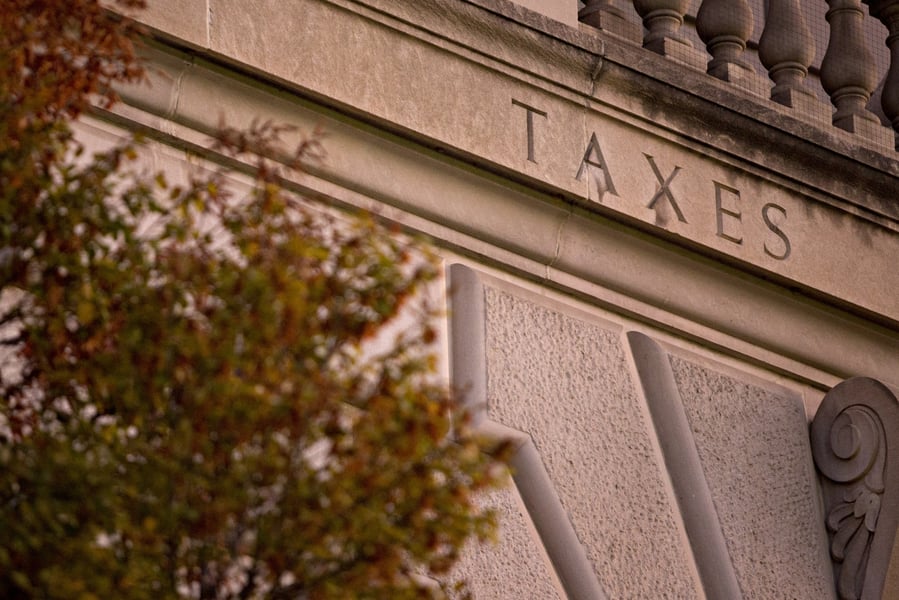Multinationals face a one-time repatriation levy of up to 17.5%, plus annual Gilti levy.
The four-employee business of Travis Baldwin, who hasn't lived in the U.S. for nearly a decade, is about to get hammered by a pair of tax provisions that were aimed at corporate behemoths like Microsoft Corp.
A Republican law signed by President Donald J. Trump in December created new taxes for corporations that have shifted their profits offshore for years. But unlike other provisions in the bill, these international changes don't set a floor on annual gross receipts for when they kick in — meaning Mr. Baldwin, who owns an industrial design company in Bristol, U.K., is on the hook even though he says his business has never made more than $100,000 annually.
The two taxes U.S. expatriates who own businesses abroad are most concerned about: a one-time repatriation levy of as much as 17.5 percent on old foreign profits and an annual levy called Gilti — or global intangible low-tax income — on foreign profits going forward.
"It's terrifying," said Mr. Baldwin, who added that he's had trouble finding a local tax attorney who even understands the new law. "It's just gotten so complicated. I feel like I have this burden that no one else has."
The tax changes are likely to convince some that it's no longer worth keeping their U.S. citizenship, according to Nora Newton Muller, who helps run the tax committee for the Association of Americans Resident Overseas. Other U.S. citizens, who haven't been paying U.S. taxes but are thinking of becoming compliant, might decide just to stay off the radar, she said.
It's hard to know exactly how many people will be affected, since the Internal Revenue Service doesn't release numbers of how many expats own businesses abroad. The AARO, a Paris-based association, estimates there are nearly 9 million expats, a portion of whom own a business.
The Republican law slashed the corporate tax rate to 21% from 35%, and shifted the U.S. to a system of taxing its companies on their domestic profits only. Those changes required guardrails — like the repatriation tax for profits stashed offshore since 1986, and the Gilti tax, to ensure multinationals pay at least something on their future overseas profits.
Expat business owners, like business-owners in the U.S., often pay themselves a salary that's only a fraction of their profits, keeping the rest in their companies for retirement or a rainy day. The new law as it stands would require expats to pay the one-time repatriation tax on their profits, even though in reality the money is never returning to the U.S. To pay the taxes, many expats will have to give themselves a dividend from their business, triggering more local taxes.
Mr. Baldwin said he found out about the changes from a Facebook group for expats. He hired a firm in Florida that specializes in expat tax issues, but the firm hasn't yet told him how much he'll owe for sure. So far, the firm has estimated his tax bill and preparation costs for next year could total an additional $20,000.
Expat business owners say they've had trouble getting lawmakers to pay attention to the issue, since few, if any, have a critical mass of expats who vote in their district. Supporters of changing the law have been trying to find a champion in the Senate.
Monte Silver, a tax attorney from Santa Monica, California, who owns a practice in Israel, traveled to Washington earlier this year to try to convince lawmakers to take up the cause.
"They said, 'Monte, the problem here is we have these little districts. We don't know on a district level how many of these people live in my district. Go to the Senate,'" said Mr. Silver.
Mr. Silver said he's gotten a Republican senator on the Finance Committee, which handles tax bills, to promise to take up the issue, but declined to name the lawmaker. The attorney said he's also met with Treasury Department officials, but they've said there's not much they can do since a fix would have to come from lawmakers.
Struggling expat business owners got one win last month. The IRS said it would let businesses that owe less than $1 million in repatriation taxes wait until next year to pay the first installment. The payment had originally been due in April 2018.
But the delay doesn't affect the Gilti tax, which business owners should have already started paying estimated payments on. Individuals will face higher rates for the Gilti tax than corporations, and find the levy applies to a broader swath of their profits since they can't take advantage of foreign credits.
Senate Finance Committee Chairman Orrin Hatch, a Utah Republican, is working with the administration to implement the new policies and will "continue to meet with members, taxpayers and other stakeholders to address any concerns with the new law and examine potential changes," Julia Lawless, a spokeswoman for the panel, said in an email.
An IRS spokeswoman declined to comment.
Alicia Vincent, who helps run a furniture business in Montfort l'Amaury, France, said she's written letters to lawmakers in her native Texas and recruited family and friends living in the state to join her. She said her accountant, who's charging about $350 an hour to calculate the new tax, estimates her company's effective tax rate will be almost 70% between France's taxes and that of the new U.S. regime.
"How can you pay 70% in taxes? You just don't make profits? Eventually we'd close up our business. It's just not worth it," Ms. Vincent said.
For those unwilling to close up shop, Mr. Silver says they just won't pay if the Gilti tax isn't modified.
"It's clear what's going to happen," Mr. Silver said. "We're going to become tax violators."







